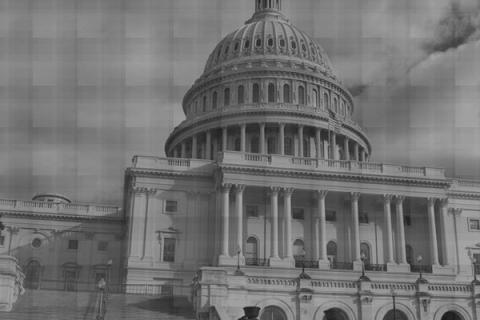
On Tuesday, August 7, 2012, the gay and lesbian wedding magazine Equally Wed promoted an event gay rights activists called, National Marriage Equality Day. Advocates of same-sex marriage were encouraged to support businesses that favor equal rights for the GLBT community, which turns out to be an extensive list.
The focus ended up being on Starbucks, but participants in the event could show their support for equal marriage rights however they wanted to.
The event was a response to the Chick-fil-A Appreciation Day promoted by influential conservative leaders and voices last week to show support for President and COO Dan Cathy’s remarks that the fast food restaurant supports the biblical definition of marriage and the family unit. 'Chick-fil-A Day' was also meant to promote Cathy’s constitutionally protected right of free speech in the wake of elected officials across the country saying they don’t like the idea of Chick-fil-A franchises opening in their cities.
Media coverage on the event wasn’t very extensive compared to Chick-fil-A Appreciation Day or the “Kiss-In” Day that followed for gay rights activists.
The difference between both events is that Chick-fil-A Appreciation Day was a concentrated effort to support a specific fast food franchise for their stance on a sensitive social issue. National Marriage Equality Day was a bit more ambiguous. Participants were encouraged to show their support for any business on a list of twenty-eight company names. The focus just happened to be on Starbucks. The best outreach for the event seemed to be a page created on Facebook.
Media footage of Chick-fil-A Appreciation Day showed images of thousands all over the country lined up to purchase a meal at their local franchise. These are individuals who, no doubt, frequent the fast food chain, but decided to eat there on Wednesday instead of Saturday. Some people waited hours in line and while watching the footage one could only wonder if many of those people took the afternoon off work just to eat at Chick-fil-A.
There haven’t been any reports of mayors of major cities anywhere in the United States that advocate the use of government resources to ban Best Buy or Apple stores from their cities because the companies fail a local elected official’s personal litmus test. The same cannot be said for Chick-fil-A. The use of government resources to ban commerce over personal politics should be discouraged.
While it may not have been very appropriate for someone in Dan Cathy’s position to remark on a sensitive topic when he knew that the opinion is controversial, he had a right to say it. The wonderful thing about free speech is that it applies to everyone, and Cathy is no exception. Neither is the person who boycotts Chick-fil-A because of the company’s insistence that Leviticus is a good book to set appropriate moral standards in American society.
The problem with Chick-fil-A Appreciation Day, “Kiss-In” Day, and National Marriage Equality Day is that they don’t accomplish anything. Certain businesses will see a temporary boost in sales, but it won't be that significant of an increase and it won’t last. The debate on the appropriate definition of marriage and what marriage equality means in this country doesn’t progress any further.
It’s great if an individual wants to show their support for a company because that business supports a topic that is very important to them. It’s symbolic to the person and no matter which side a person is on it helps the economy to some degree.
The best approach to promoting rights for the GLBT community is to write, email, or contact your state legislators in some way and get involved in an organization that actively works towards the same goal. The same applies to anyone who believes in the “traditional definition” of marriage. This is an issue that needs to be taken to policy makers, not Chick-fil-A or Starbucks.
There are some who want this to be a national issue. Nearly every GOP presidential candidate that ran for the party’s nomination, including Mitt Romney, said they would push for a constitutional amendment that would define marriage as a union between one man and one woman. There are gay rights activists who would like a national law that extends legal marriage rights to gay couples across the country.
In public people on both sides of the debate will speak of a federal role to addressing the issue, but none of them really want that. It is a state issue and, deep down, both sides want it to stay that way. Republicans won’t introduce a resolution that calls for an amendment to the United States Constitution that defines marriage in the way they’d like. It’s a hollow talking point on the campaign trail that, most likely, won’t happen.
Gay rights activists don’t want to push for the same thing, because the results would not go their way. Only five states and Washington, D.C. currently allow gay couples to be legally joined in marriage. Five additional states allow civil unions, but do not allow gay couples to be married under the laws of their jurisdiction. Thirty-nine states have banned or don't recognize same-sex marriage either through a state constitutional amendment or legal statute. If there is a constitutional amendment defining marriage it won't favor those who argue for marriage equality.
It’s a complicated issue that deserves a serious approach, but there will not be congressional legislation or a constitutional amendment on the matter so those concerned with the issue should become active and get involved on the state level. Instead of protesting outside a fast food franchise, protest outside your state capitol building during a legislative session. There are a number of ways to make your voice heard. You may ultimately lose too, but you would have more of an impact on the on-going marriage debate than you would by buying items on Amazon.com.
